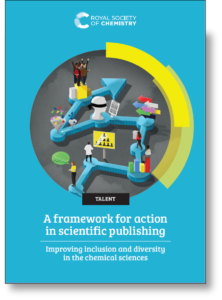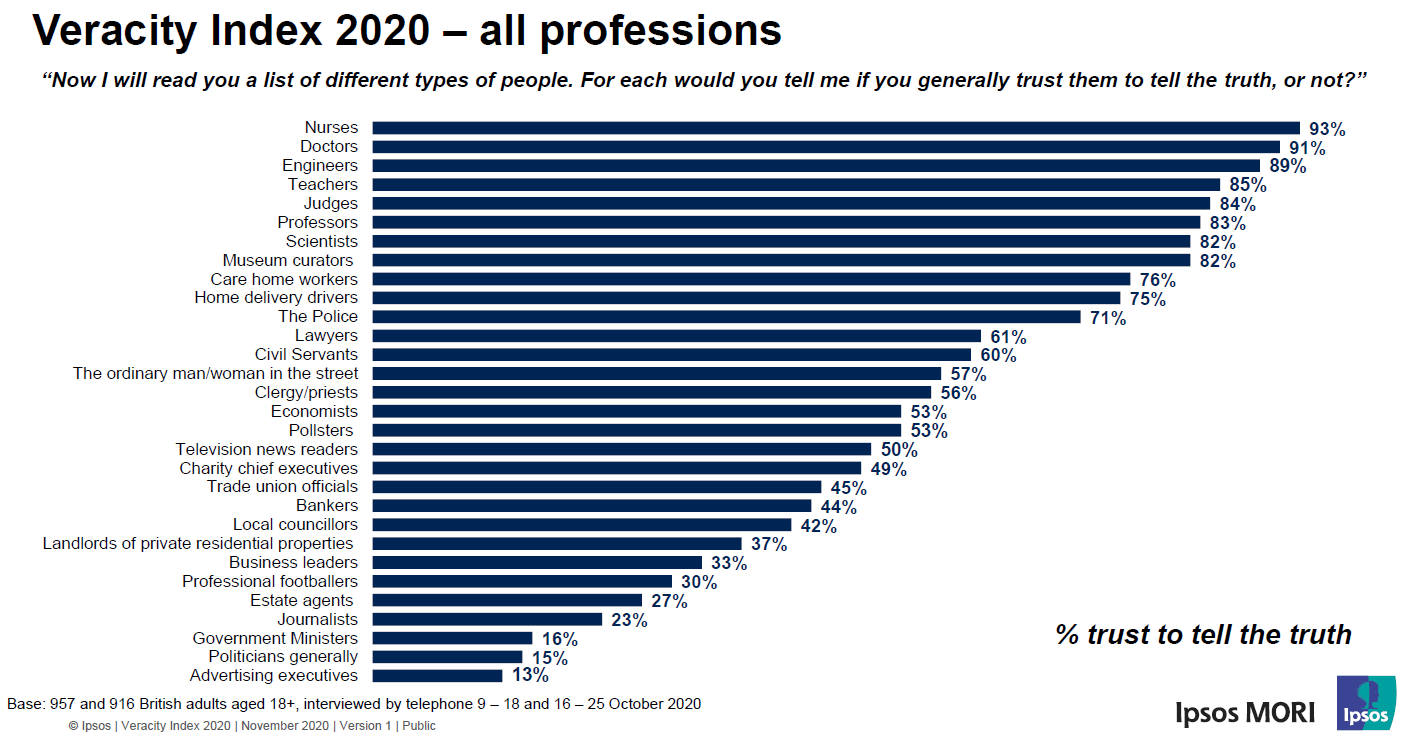Dr Nicola Nugent: Publishing Manager at the Royal Society of Chemistry
Before scientists can ask the public to trust science, they need to trust science themselves. The ‘quality control’ process for scientific information consists of peer review, a system by which scientists read their peers’ work and decide if it is rigorous and worthy of publication. Behind the scenes, ensuring the rigour and fairness of the peer review process itself, are people like Dr Nicola Nugent, who works as a publishing manager for the Royal Society of Chemistry. I wanted to know her thoughts on why the peer review process is important for the trustworthiness of science, and how it may impact the public’s trust in science.
Thank you for agreeing to this interview, Dr Nugent. Could you please tell our readers a little bit more about your job with the Royal Society of Chemistry (RSC)? What does a publishing manager with a focus on quality and ethics actually do?
I’m responsible for developing the peer review strategy across our journals portfolio, with a focus on making sure our editorial and peer review practices are both high quality and rigorous, as well as fair and inclusive. This means I get involved with a diverse range of activities including ensuring our peer review policies and good practices are implemented consistently across our journals, experimenting with different peer review models, and working with our Editorial Boards to implement our inclusion and diversity Framework for Action.
I also oversee our Publishing Ethics team, which is responsible for handling any publishing ethics issues in our journal content, and during the submission and review process. Our ethics team support our journal teams to uphold the integrity of the scientific literature, and act to correct the literature (for example, through retractions) where necessary.

I have watched the video launched by the RSC for Peer Review Week where you talk about what a trustworthy peer review process looks like. But I wanted to ask: why do you think it matters? Why is it important that the peer review process is trustworthy?
Peer review plays a really critical role in upholding the integrity and quality of the scientific literature. A trustworthy peer review process is needed to maintain trust in published research. It’s vitally important that we support evidence-based decision making at every level of society, and to do that we have to make sure that the most robust research evidence is available. A high-quality, rigorous and trustworthy peer review process is really central to that effort.
What impact do you think the peer review process has on the public’s trust in science? Do non-scientists know about the process, do they care – and should they know and care, and why?
I suspect that many people outside of research don’t have a strong understanding of peer review. This can mean that people don’t necessarily know which sources of information they should trust. Ultimately this has the potential to cause harm, if people rely on misleading or unsupported claims about things like medical treatments or – as it’s highly topical at present – vaccines.
How can scientists communicate to the public how the peer review process works, and its importance?
I see signs of this already, perhaps accelerated by the current pandemic. For example, many pre-print servers have clear messaging that their content is not peer reviewed, and the implications of that. I believe that science journalism has an important role to play here, in supporting public understanding and reporting responsibly on new findings, especially if they are yet to be peer reviewed.
Is the RSC leading any efforts towards fostering an understanding of the peer review process and its importance with the public? What do you think such an effort should look like?
Many of our efforts here have so far tended to focus on researchers – supporting early career researchers in navigating the publishing and peer review process, and in serving as peer reviewers themselves, with the benefits that can have for their careers and development. But I certainly see a role for scientific societies like us with respect to public understanding of, and trust in, science more generally, and getting the message out about the way peer review works may be an element of that.
What do you think is the single biggest challenge facing scientists today when trying to gather the public’s trust?
There are so many sources of information available to people, including social media misinformation on an industrial scale. As we have seen recently, on emotive topics like vaccinations, which involve scientists working together across many disciplines, that can make having objective, rational conversations difficult. Trying to make sure the voice of scientists is heard in that public debate is a hugely important challenge and as an organisation we do that in a variety of ways, from working directly with government to provide the best advice on policy, to supporting educators, organising outreach and public engagement opportunities, as well as our many communications to our growing international community.
Do you have any advice for early career scientists who are trying to create genuine relationships with the public, and earn their trust?
Perhaps one thing to note is that “the public” is actually a myriad of individual people, all with their own interests, influences and concerns. That means building trust can happen on a micro scale – in a one-on-one conversation with a friend, neighbour or family member – right through to communicating with the widest possible audiences, possibly through using social media platforms to engage with a bigger, broader group. It’s also important to point out that scientists are consistently shown to be a respected and trusted* group – far more than politicians, for example, so however you engage with people, if you are prepared to have open, transparent conversations about your science, that should continue.

Figure from the annual UK IPSOS trusted professions research, which can be consulted here.
- Turning frustration into change: Jean-Sébastien Caux, founder of SciPost - August 9, 2021
- Dr Nicola Nugent: Publishing Manager at the Royal Society of Chemistry - December 7, 2020
- Public Engagement and Trust in Science: In Conversation with Dr. Farzana Meru - November 23, 2020
- Is the peer review process trustworthy? Perspectives by Dr. Jurado Sánchez - November 4, 2020
- Prof. Maria Baghramian: Policy, Expertise and Trust in Action - October 29, 2020
- Prof. Luke Drury: ‘When Experts Disagree’ - October 5, 2020
- Are we what we hear? A reflection on sound, identity and science communication - September 27, 2020
- Sign your Science - September 22, 2020
- Raven the Science Maven - August 18, 2020
- Dr Mark Temple: DNA Sonification or when Scientist are musicians - August 5, 2020





Leave a Reply
Want to join the discussion?Feel free to contribute!